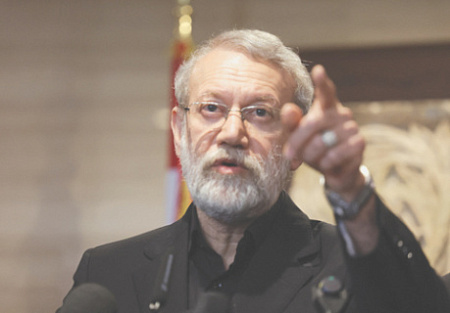
As Iran and the European trio of Britain, France, and Germany prepare for a new round of nuclear negotiations in Geneva on August 26, the diplomatic efforts are being dangerously overshadowed by escalating military tensions across the Middle East. The talks, the second since a recent 12-day war, aim to break a deadlock that has brought the region to the brink, with European powers urging Tehran to resume dialogue with Washington and clarify the status of its nuclear program, believed to have been damaged by U.S. and Israeli strikes.
Tehran is sending mixed signals, with internal divisions shaping its negotiating stance. Pragmatic figures, such as National Security Secretary Ali Larijani, are reportedly lobbying for a compromise to lower uranium enrichment from 60% to 20% to prevent the snapback of UN sanctions and avert a wider war. This is fiercely opposed by hardliners, including the powerful Islamic Revolutionary Guard Corps (IRGC). This potential concession, however, falls far short of Washington’s demand for a complete halt to Iran’s domestic enrichment, a stance President Donald Trump has refused to compromise on, citing the risk of a regional nuclear arms race. The fate of Iran’s existing stockpile of highly enriched uranium, potentially buried under the rubble of bombed facilities, remains a critical unresolved issue.
The diplomatic impasse was starkly highlighted by Iran’s Supreme Leader, Ali Khamenei, who dismissed the possibility of a resolution with the United States. On August 24, he declared the crisis “insoluble,” asserting that any calls for direct negotiations were “superficial” and that the Iranian nation would resist American pressure. This declaration deals a significant blow to reformist circles within Iran who recently published an open letter urging the government to halt the nuclear program and curb the IRGC’s power to stave off economic collapse and the devastating consequences of another war.
Meanwhile, the rhetoric of war is materializing into direct conflict. In an unprecedented attack, Iran-allied Houthi rebels in Yemen recently launched a cluster-munition rocket into Israel, which its air defense systems failed to intercept. Israel responded swiftly with retaliatory strikes on Houthi military and energy infrastructure. An advisor to the Israeli Prime Minister’s office stated that Israel holds Tehran implicitly responsible and “will not allow the shelling of its territory from any side,” vowing to protect its citizens from all threats. In a clear sign of preparation for a larger-scale conflict, Israel’s Ministry of Defense has authorized the purchase of additional KC-46 refueling aircraft, a move that would more than double its air force’s capacity for long-range operations, including potential strikes on Iran and Yemen.
Iranian officials have responded with defiance, insisting they are prepared for any scenario. The IRGC’s deputy commander, Ali Fadavi, claimed that Iran’s armed forces are stronger now than they were before the recent war with Israel. Reinforcing this militant posture, a senior military advisor to the Supreme Leader, Major General Yahya Rahim Safavi, noted that no ceasefire agreement exists with Israel and that the war formally continues. In an ominous warning, he added, “I believe another war may happen, after which there may be no more wars.”
